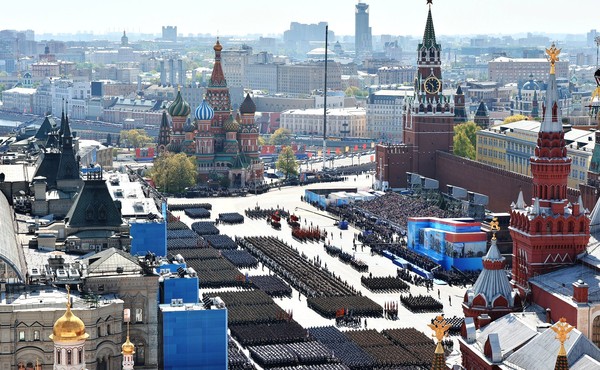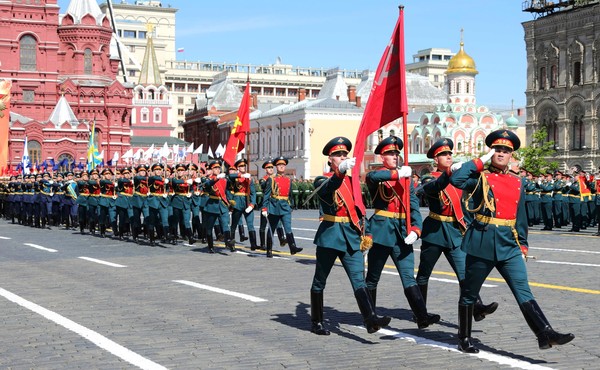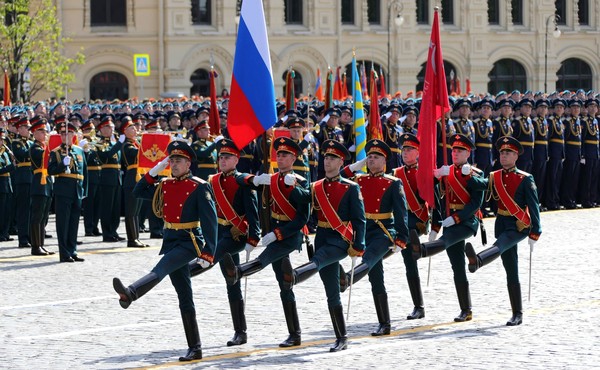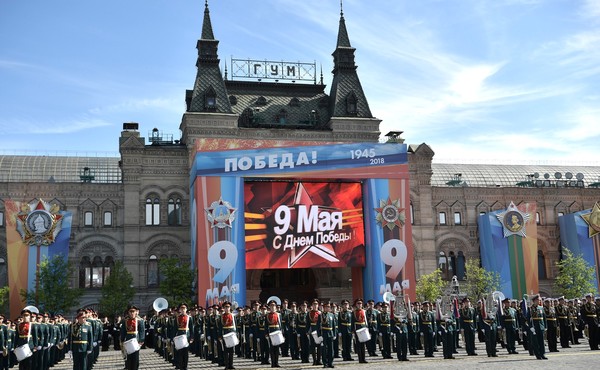Korea was liberated from Japan on Aug. 15, 1945
The Victory Day of the Russian Federation is a great day not only for Russia but for many other countries of the world, especially the CIS (Commonwealth of the Independent States) countries.
According to a recent report by the Korean-language daily, Chosun Ilbo, President Vladmir Putin of Russia postponed the celebration of the Victory Day due to the woes of CORVID-19 epidemics. However, this day is celebrated very importantly in Russia and other CIS countries and this year reports indicate that President Putin had invited the Head of Government of China, France and many other important countries of the world, which, however, is not realized to the CORVID disease.

At this juncture, it might not be amiss to introduce the Victory Day as is a great day for many countries of the world, especially Korea who has had a bitter experience of external occupation for 3t years colonialist and military led government of Prime Minister Hideki Tojo until Japan’s surrender in 1945.
The Victory Day, as was briefly introduced afore, is a holiday that commemorates the surrender of Nazi Germany in 1945. It was first inaugurated in the republics of the Soviet Union, following the signing of the German Instrument of Surrender late in the evening on 8 May 1945 (after midnight, thus on 9 May Moscow Time).
According to Wikipedia, the Soviet government announced the victory early on 9 May after the signing ceremony in Berlin. Though the official inauguration occurred in 1945 the holiday became a non-labor day only in 1965 and only in certain Soviet republics.

In East Germany, the 8th day of May was observed as Liberation Day from 1950 to 1966, and was celebrated again on the 40th anniversary in 1985. In 1975, a Soviet-style "Victory Day" was celebrated on 9 May. Since 2002, the German state of Mecklenburg-Vorpommern has observed a commemoration day known as the Day of Liberation from National Socialism, and the End of the Second World War.
The Russian Federation has officially recognized 9 May since its formation in 1991 and considers it a non-working day even if it falls on a weekend (in which case any following Monday will be non-working). The holiday was similarly celebrated there while the country was part of the Soviet Union. Most other countries in Europe observe Victory in Europe Day, 8 May, as a national remembrance or victory day.
The German Instrument of Surrender was signed twice. An initial document was signed in Reims on 7 May 1945 by Alfred Jodl (chief of staff of the German OKW) for Germany, Walter Bedell Smith, on behalf of the Supreme Commander of the Allied Expeditionary Force, and Ivan Susloparov, on behalf of the Soviet High Command, in the presence of French Major-General François Sevez as the official witness.

Since the Soviet High Command had not agreed to the text of the surrender, and because Susloparov, a relatively low-ranking officer, was not authorized to sign this document, the USSR requested that a second, revised, instrument of surrender be signed in Berlin. Joseph Stalin declared that the Soviet Union considered the Reims surrender a preliminary document, and Eisenhower immediately agreed with that. Another argument was that some German troops considered the Reims instrument of surrender as a surrender to the Western Allies only, and fighting continued in the East, especially in Prague.
During the Soviet Union's existence, 9 May was celebrated throughout the USSR and in the countries of the Eastern Bloc. Though the holiday was introduced in many Soviet republics between 1946 and 1950, it only became a non-labour day in the Ukrainian SSR in 1963 and the Russian SFSR in 1965. In the Russian SFSR a weekday off (usually a Monday) was given if 9 May fell on a Saturday or Sunday.
The celebration of Victory Day continued during subsequent years. The war became a topic of great importance in cinema, literature, history lessons at school, the mass media, and the arts. The ritual of the celebration gradually obtained a distinctive character with a number of similar elements: ceremonial meetings, speeches, lectures, receptions and fireworks.

In 1995, as the world celebrated the 50th anniversary of the end of the war, many world leaders converged on Moscow to attend the city's first state sponsored ceremonies since the fall of the USSR. In 2015 around 30 leaders, including those of China and India, attended the 2015 celebration, while Western leaders boycotted the ceremonies because of the Russian military intervention in Ukraine.The 2020 edition of the parade, marking the 75th anniversary of the victory over Nazi Germany, was postponed due to the coronavirus pandemic.
In Israel, Victory Day on 9 May has historically been celebrated as an unofficial national remembrance day. However, in 2017, Victory in Europe Day was upgraded to the status of an official national holiday day of commemoration by the Knesset, with schools and businesses operating as usual.
Victory Day Parades are military parades that are held on 9 May, particularly in various post-soviet nations such as Russia, Kazakhstan, Belarus, and until 2015, Ukraine. Outside of the former Soviet Union, military victory parades have also been held in Serbia, Poland and the Czech Republic.
The first victory day parade on Red Square took place with the participation of the Red Army and a small detachment from the First Polish Army on 24 June 1945. After a 20-year hiatus, the parade was held again and became a regular tradition among Eastern Bloc countries and Soviet allies. Countries that had this tradition included Yugoslavia and Czechoslovakia, both of which had their last parades in 1985
After the fall of the Soviet Union, they quickly fell out of style in Europe and soon became a practice among post-Soviet nations, many of which have large Russian populations. In 1995, Russia, Kazakhstan, Belarus, and Ukraine held parades for the first time since 1991.

